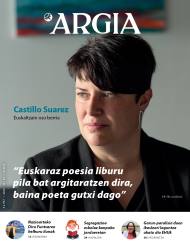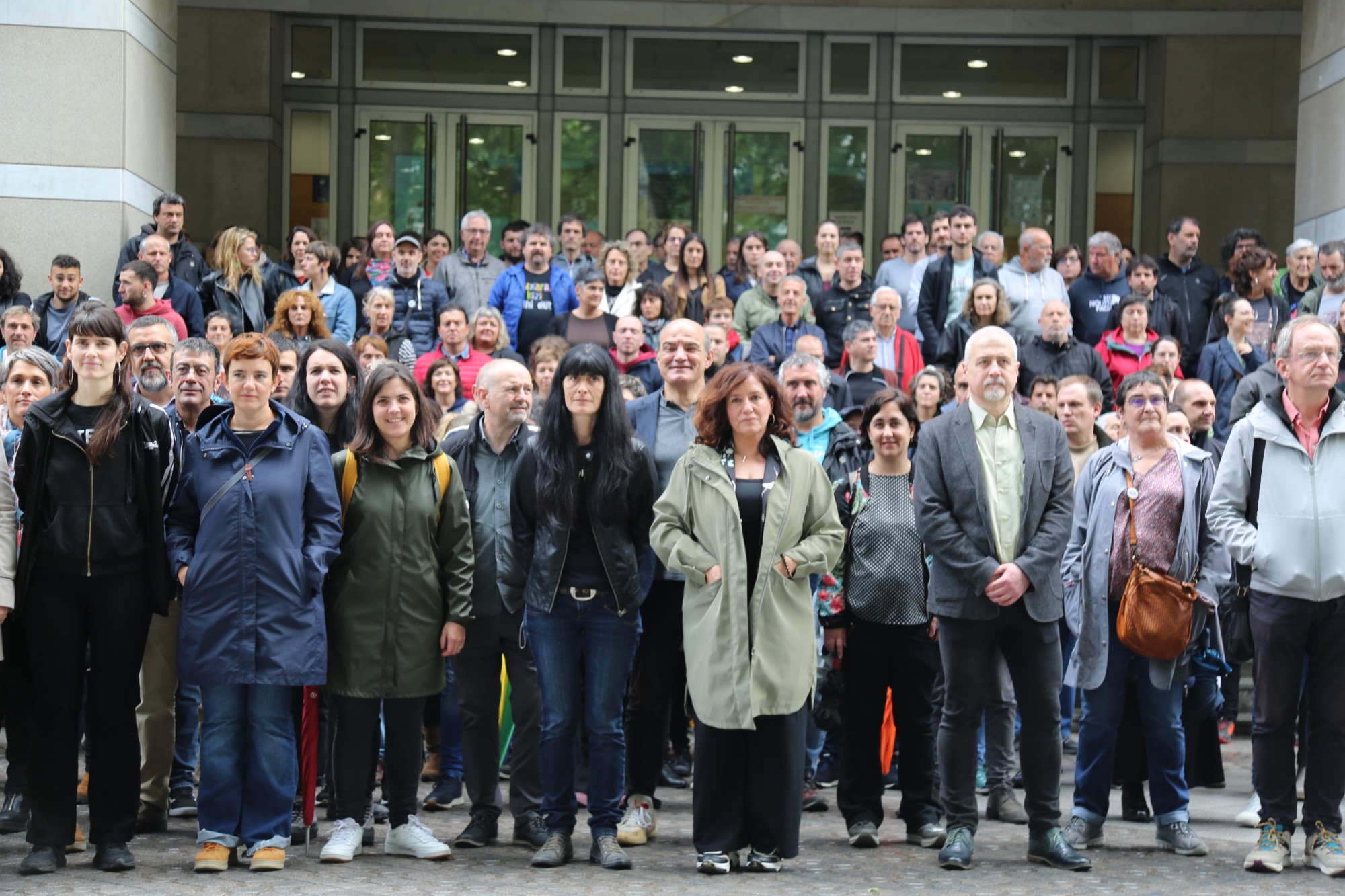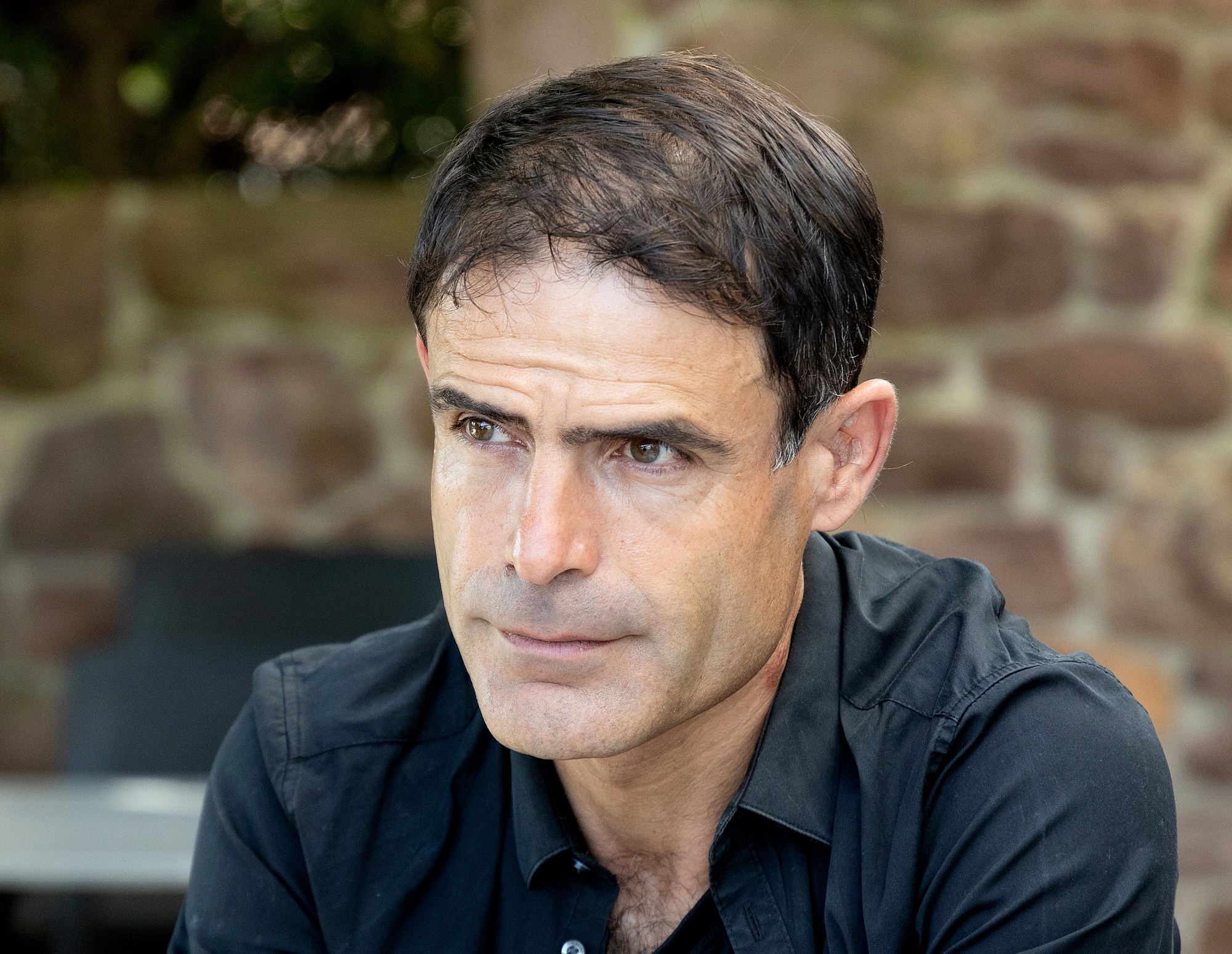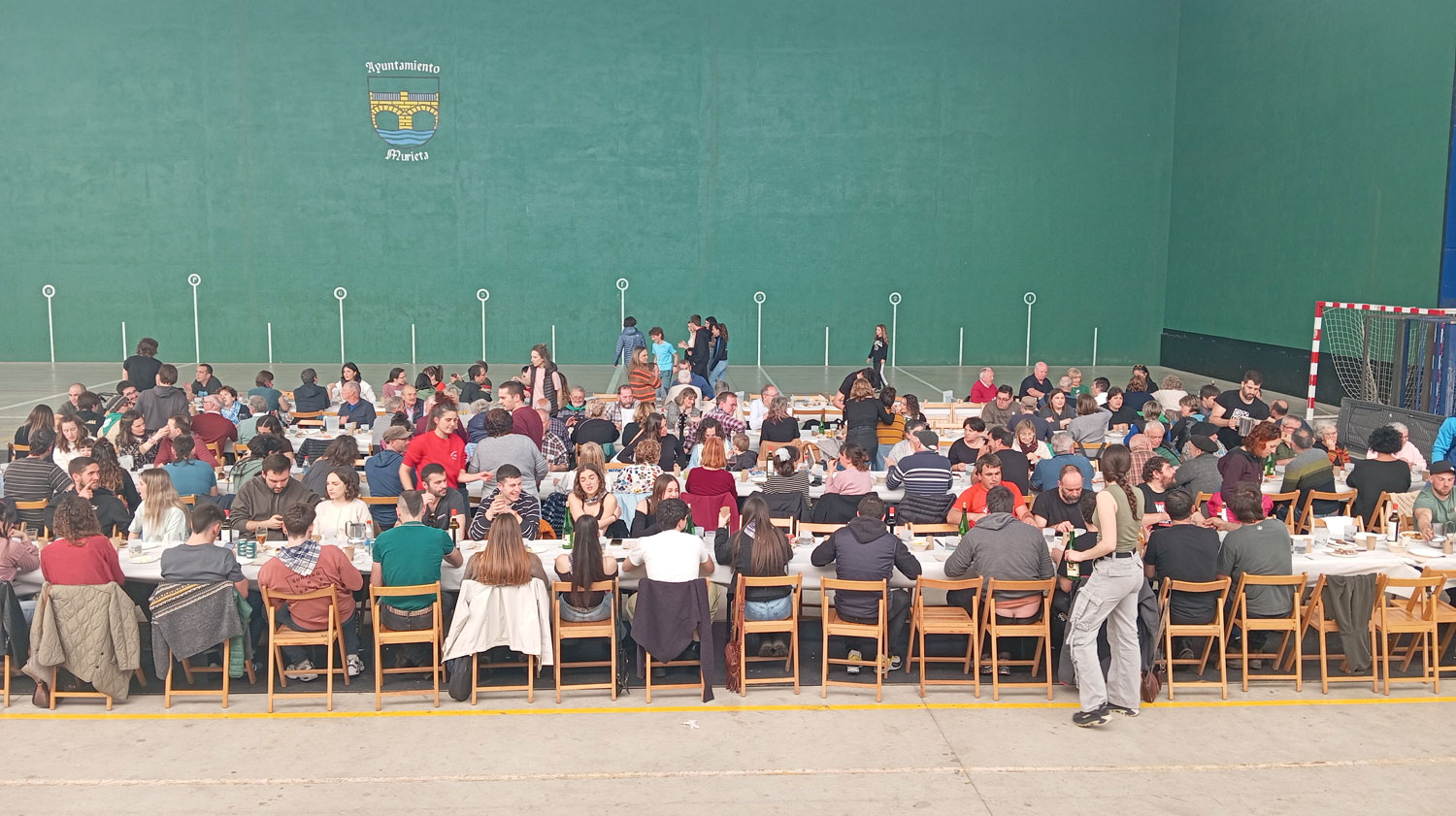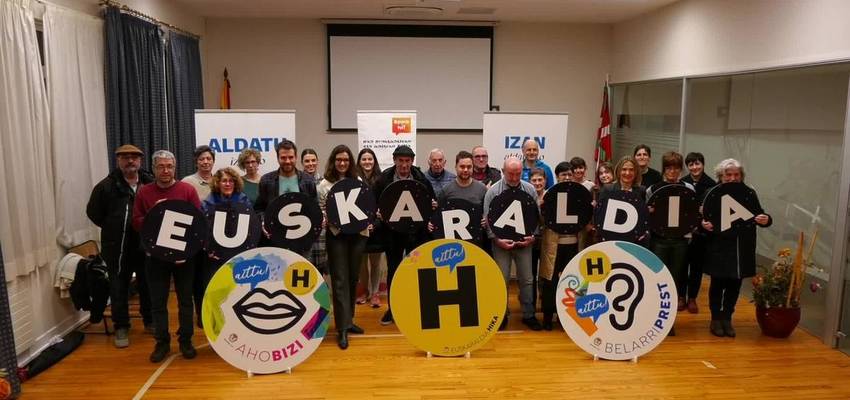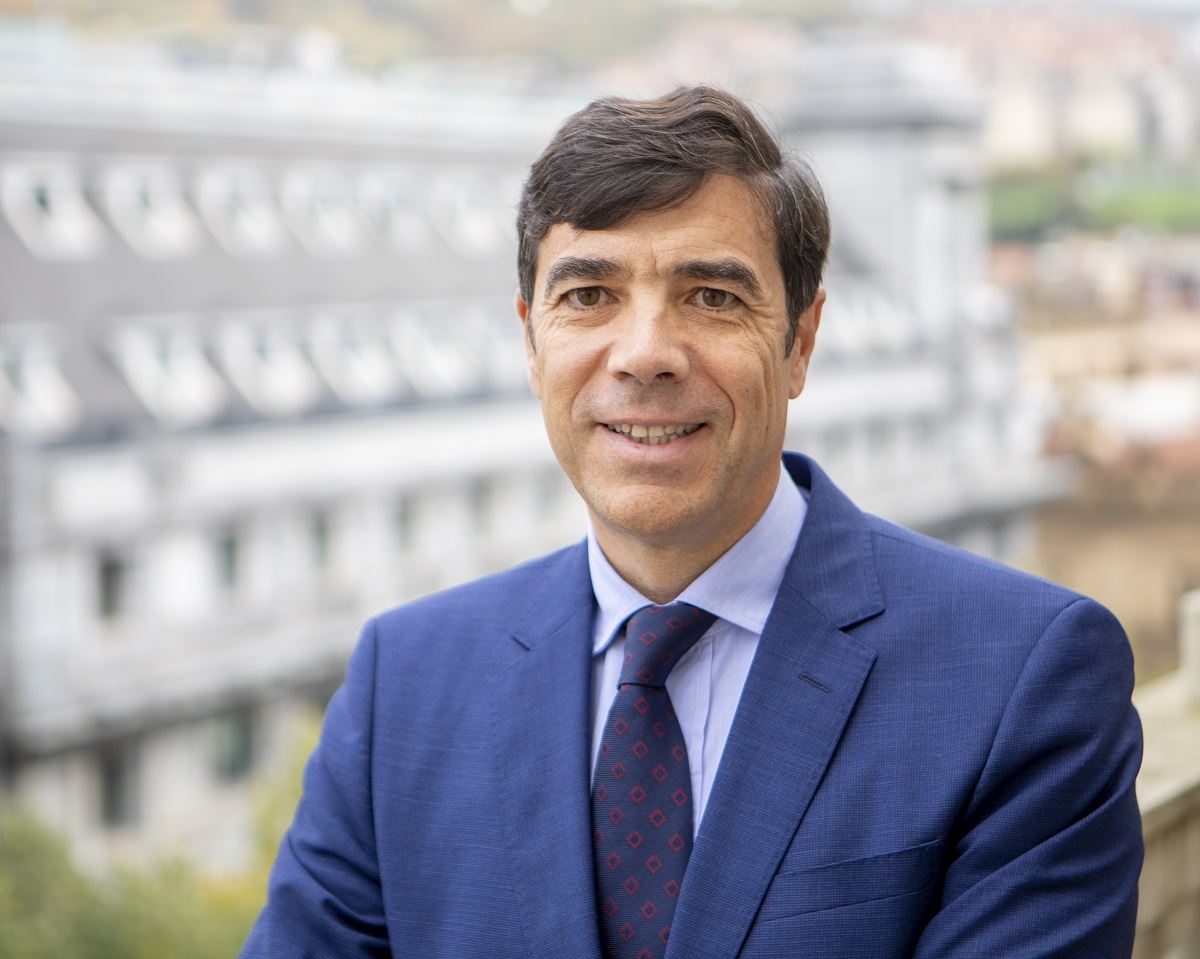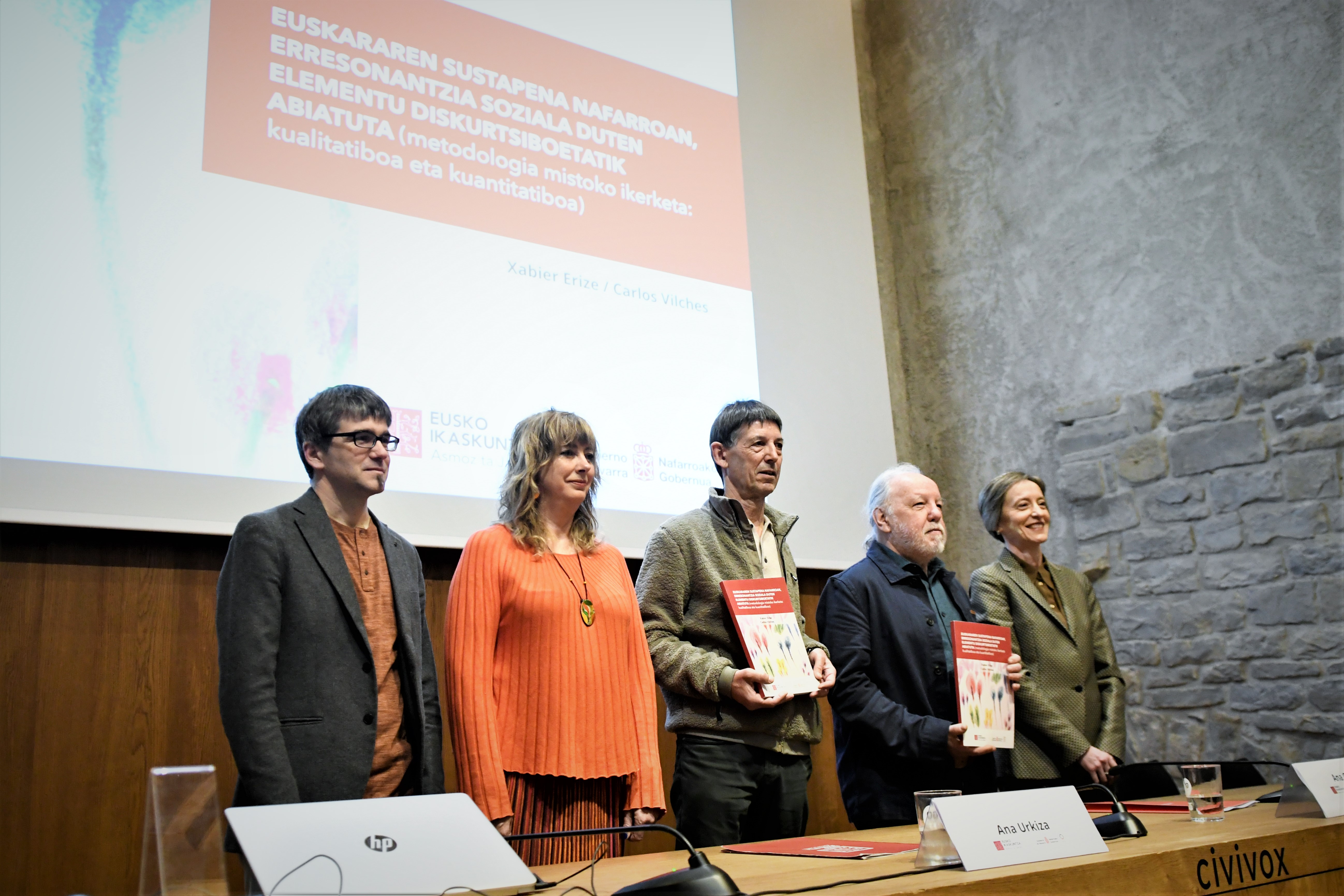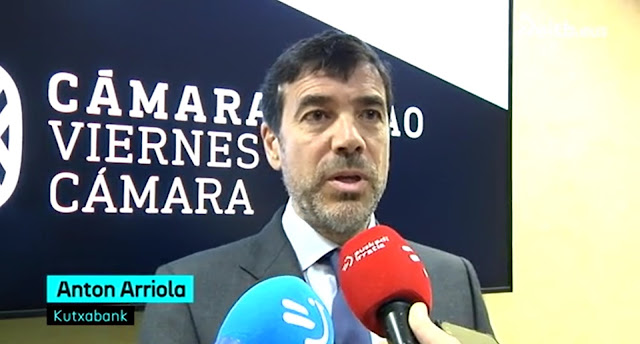"Knowledge of Spanish is assumed in Bilbao"
- Ainhitze Bizkalegorra has lived in Belgium, the USA, India and Thailand (Bilbao, 1972), working on international human rights networks and for the European Commission. After meeting many countries, cultures and contexts, he returned to Euskal Herria in the midst of a pandemic with the intention of staying with his daughter. This international experience has allowed him to critically look at the local reality, especially that of the Basque educational system, since his daughter arrived in Bilbao knowing Basque, English and German, but without Spanish. We talked to him about that.

You've lived in many places in the world. How?
I've always had a foot in Euskal Herria, and the second foot is what I've had in those places. Knowing international relations and cultures has always been very present at home. We have also been driven by interest in democracy and human rights. It was part of a non-governmental organization that was part of a European federation and needed a representative on a platform of youth associations. So I started volunteering at European level.
I lived in Belgium for Erasmus and as a Basque Belgium it was very interesting: in a federation, multiculturalism, political plurality… When I finished college, they took out a job offer in the European institutions and from there I went to the European Commission. The European Commission then started the decentralisation process and I was offered a seat in the delegation to be opened in India. I knew nothing about India, I only knew Ghandi. I was very happy.
Then I returned to Brussels; then I returned to India and later to Thailand. For two years now, I have both feet in Euskal Herria and the intention is to stay that way for the moment.
What has this tour given you?
I've seen that as a culture we have differences, but also the ones we have in common are many. Health, the environment, human rights… are common issues around the world. And it supports working for them and strengthening your differentiated personality, your brand. I've seen that I'm very global and very local. It has confirmed and strengthened me in Basque identity. I have also added European identity along the way.
I think I went to find ways to work in other villages. From the moment I went, I imagined I was going to get dressed in content and knowledge abroad. That he would learn, that he would have professional development and that he would apply that knowledge again in the Basque Country. But when I've come back, I realize that maybe the most valuable thing I've ever brought is more than personal experience, more than knowledge. The intercultural relationships that have occurred, the experiences, the having tried different ways of life and what that gives you.
Throughout the world they have formed a family. Multilingual family. How have they worked in relation to languages?
We have three languages at home. My father speaks to his daughter in German; I speak to the daughter in Basque; and the parents in English. Operation has not been complicated. I suggested to my father that he do it in one language and I have always done so. When your daughter lacks a word, she tells us in another language, but we keep the language and respond to her by talking about how that word is said in our language. For example: "I want water." You want water?
This channel consolidates and strengthens the language of use. In our meals the three languages are present and complementary at the table.
.jpg)
Is this multilingualism common in your environment? How do people see?
When I come back here, I've realized what monolingualism and unitary culture is embedded in people's minds. Even though you see and hear more diversity, it seems that if you use one language, it ignores another.
A Portuguese and a Basque founded in Austria children who entered the German school in Bilbao. They find that several parents chose this school so their children didn't have to learn Basque. If you listen to speak in Basque with your children, those parents look bad, but if you do it in English or German there is no problem.
We have a great challenge not only to live in one language, but to frustrate ourselves. I know that today it is not possible to live only in Basque, but I also want to live in Basque.
Belgium and India are multilingual. In Belgium the distribution is by territorial area. But in India every day, people use two or three languages. People of any kind, even without schooling. They study at work, at home and anywhere. It is said here that it is difficult to learn languages, but anything is difficult if it does not make sense or useful. For us, in our house, it has been easy, comfortable, natural and nice.
In 2020, her daughter came to live in Bilbao at the age of nine, Basque, German and English.
Before we also had some summers here. We are now in a pandemic period. We got room in a public school from the Department of Education. The school and the tutor received us very well, taught the facilities and materials to their daughter, but upon arrival there were no classes for a few weeks by the closure. Meanwhile, we kept our daughter enrolled in Bangkok school for three months. At the end of that course, the tutor sent him a video that his colleagues recorded to welcome his daughter. With a song in Basque, but half of her colleagues spoke in Spanish. They asked the parents to record the short messages, and many did so in Spanish.
In the following September, when the course began, the daughter was surprised by the difficulty her colleagues had in speaking in Basque. He told me he wanted to go to a school in Basque. But I was in model D! I later learned that the child spent almost two months talking very little. I was able to communicate in Spanish for Christmas. Some colleagues and teachers do not sometimes believe you when you lack a Spanish word. It develops well, but it lacks vocabulary, synonyms… It assumes the knowledge of Spanish.
There are some colleagues who make a special effort in Basque. Parents of foreign origin or multilingual families of origin.
.jpg)
And how does the daughter bring these experiences related to languages?
The school told me to encourage my daughter to keep the Basque and speak in Basque. But my daughter is not a hero. In school he wants to be like others and is not willing to bear that burden. He notes that those around him use Spanish and that not working properly in Spanish is rare. A few months ago we left the Kantu bat gara concert and then said to me “It has taken away the shame of making Basque, but on the street not in school.”
The first course was marked by this surprise: the difficulty of the environment and the lack of school environment in Basque. It was also clear to me that I am the father of a Basque and foreign child.
He has needed reinforcement to be literate in Basque and has been in the HIPI Language Reinforcement program as a new student. Among other things, he made a presentation to his colleagues to tell their trajectory, their territory and how they lived. And he did it with a lot of excitement. Others also better understand their situation since then. And we asked the professor to do a similar presentation.
And as for after-school activities, what options have you had?
Study in different programs at the Music School of Bilbao. The daughter has relations in Basque with the new Basque Professor and they were surprised at the school because they did not know she was able to speak in Basque. The individual relationship is established in Basque and the orchestra in bilingual.
I wanted to go to the catechesis, and for that I did a little research. After a tour of the churches in Bilbao, we were transferred from the Bishopric to two or three churches. In the end we have known that in Bilbao catechesis is offered in Basque in one parish. And we've gotten my daughters to do this in Basque, but this information is not readily available.
He has also held theatre and swimming courses in Basque. He also tried the dance, it was in Spanish, but he left it soon. The Basque ball also does it in Basque. In short, all after-school activities are currently in Basque.
They have all been enriching relationships and experiences. However, some habits and protocols are lacking. On more than one occasion, after a meeting with parents in Spanish at the beginning of the course, I asked in what language the courses will be and we realized that all children are Basque and that the courses could be held only in Basque. But a father has driven it, the City Hall should have a protocol.
The experience in different schools around the world has allowed you to know different educational models. As for the classroom dynamics, as for the relationship with parents, how do they work?
As for the methodology, we have noticed that the thing has not changed: need to memorize, many studies, does not encourage cooperation…
He studied in India at German school. They worked linguistically with two teachers. One was always in English and the other was always in German. And the days of the week were separate: sometimes German was the language of instruction and sometimes English. This can work. Interculturality did not work especially. But half of the teachers were Indian and the other half were German; most of the students were European.
He was in an Australian school in Thailand. Half of the students were Thai and the other half belonged to the rest of the world. That was an international and intercultural school! They celebrated a very common International or Intercultural Week. But, for example, when they worked on the environment, they worked on the problems of the whole world, from the perspective of the different countries. They used diversity very well within the class: the origin of each, the knowledge, the cultures… They also worked for projects, many teamwork, many debates and tertulias…
.jpg)
The daughter is very surprised here, for example, with the little possibility that the students have of speaking before the class. They also read much less here than in other schools. And that also seems to me fundamental to working on proper training in Basque. The relationship with parents is also very different. There is no culture to involve families. Family and school can collaborate a lot.
I'd also like to talk about the uniform. Until my daughter has to wear the uniform in Australian school, I have to acknowledge that she had a bias about the uniform. On the contrary, after four years of wearing the uniform, I have to admit that I am in favour of it. Besides being an equal element, it is an element that helps families save time and money. However, the premises are comfortable uniforms – adapted to the age, for example, rather than trousers – not like many seen in the streets of Bilbao. My daughter has asked me how it is possible to play with some here. Both in India and Australia, public and private schools use the uniform. Children don't devalue the brand of clothing or the frequency of changing it. It is compatible to wear uniform in school with the development of each child's personality.
Finally, one thing that draws your daughter's attention is that in school here there is a lot of goal football, another sport or amusement park with few spaces.
"The West has a lot to reset, we have to change life."
“The beginning of Pandemic caught me in Thailand and coming here, seeing people wearing the mask, I thought I was in Asia. Living before the pandemic as we lived in Western Europe was absolutely unsustainable. This is how a minority in the world lives. During the years I have lived in India, I have not had two equal days. I have never known if we would have water, if they would cut off electricity or if there were changes in traffic. Here everything was programmed and robotic. I know that it has been very damaging to many people, but it has been an opportunity for social and individual reset. The West has a lot to reset, we have to change life.”
"Ask for your turn and we'll join you," the willing and cheerful announcer who speaks from the studios tells the young correspondent who walks through the streets of Bilbao. The presenter immediately addressed the audience. "In the meantime, we are going to Pamplona..." They opened... [+]
Aberri Eguna elkarrekin ospatzeko xedez sortu zen Euskal Herria Batera plataforma. Aurten, ikusgarri bat eskainiko dute apirilaren 11n, Manex Fuchs antzerkilariaren, Lorea Agirre idazlearen eta Martxel Rodriguez dantzariaren eskutik.
Gozamen aparta bezain deskribatzeko zaila dakar, norbaiten hitzak irakurri edo entzun ostean, zera pentsatzeak: “Horixe zen neu aurreko hartan azaltzen saiatu nintzena!”. Idazlea eta itzultzailea da María Reimóndez, eta galegoz aritzen da, hizkuntza... [+]
From linguistics or glotophobia and, of course, hatred against Basque, we have often seen our Basque become the dandruff of all sticks. Last of all, the president of Kutxabank, Anton Arriola, has been shaking our language and giving us galantas.The President of Kutxabank,
... [+]









